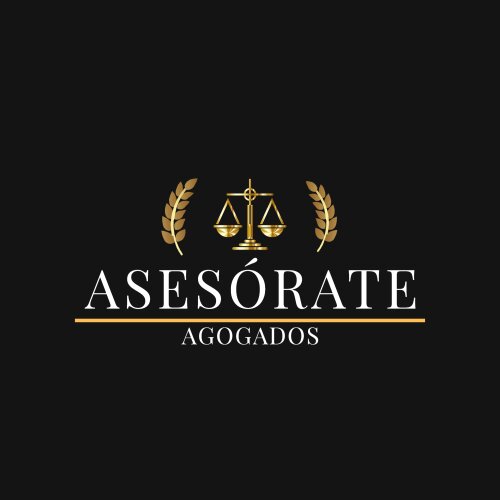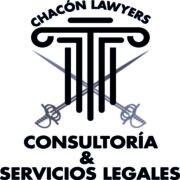Best Military Divorce Lawyers in Bogota
Share your needs with us, get contacted by law firms.
Free. Takes 2 min.
Free Guide to Hiring a Family Lawyer
List of the best lawyers in Bogota, Colombia
About Military Divorce Law in Bogota, Colombia
Military divorce in Bogota, Colombia refers to the legal process where at least one spouse is an active member, retiree, or pensioner of the Colombian Armed Forces or National Police, and the marriage is dissolved through civil court proceedings. Military divorces typically involve unique aspects related to military benefits, pensions, discipline, and jurisdictional matters. Colombian family law governs divorces in general, but certain statutes, regulations, and procedures apply specifically when a party is in the military. Understanding these particularities is crucial for a fair and efficient process.
Why You May Need a Lawyer
Divorcing when one or both parties are affiliated with the military can be complex. You may need a lawyer for several reasons:
- To navigate the division of military pensions and allowances, which are regulated by specific legislation separate from civilian assets.
- To ensure that child custody, support, and visitation agreements are realistic and account for deployments, postings, or relocations.
- To address potential jurisdictional issues if one spouse is stationed outside Bogota or Colombia.
- To help with protection of rights related to access to healthcare, housing, and other military benefits post-divorce.
- To guide you through the formal proceedings required by both family courts and military institutions.
- To represent your interests in mediation or litigation, especially if disputes arise over property or parental rights.
Local Laws Overview
Military divorces in Bogota are regulated both by Colombian Family Law and the regulatory frameworks of the Armed Forces and National Police. Some key aspects include:
- Jurisdiction: While family courts handle the dissolution of marriage, certain matters such as pension distribution may require engagement with military authorities.
- Military Pensions: Division of military pensions follows Law 923 of 2004 for Armed Forces and Law 923 for National Police, outlining the spouse's entitlement based on the duration of marriage and contributions.
- Asset Division: Standard community property rules apply, but particular attention must be paid to benefits exclusive to military personnel.
- Child Custody and Support: Decisions are made based on the best interests of the child, with special consideration for the unique nature of military service, such as deployments.
- Procedures: Besides civil proceedings, notification to military employers may be necessary to manage changes in dependents and benefits.
- International Elements: If either spouse is posted abroad, cross-border legal considerations and possible coordination with Colombian embassies may arise.
Frequently Asked Questions
What is a military divorce in Bogota?
A military divorce involves at least one spouse who is a member or pensioner of the Armed Forces or National Police. It includes standard divorce procedures plus additional steps for military benefits and jurisdiction.
How is a military pension divided in a divorce?
Military pensions are considered marital property if accrued during the marriage. The non-military spouse may be entitled to a share proportional to the duration of the marriage and time of service, as regulated by military pension laws.
Do military divorces take longer than civilian divorces?
They can be more complex and sometimes take longer, particularly if there are disputes over military benefits, jurisdictional issues, or if a party is deployed or stationed abroad during proceedings.
What happens to military housing after divorce?
Typically, only active service members or retired personnel are entitled to military housing. Upon divorce, the non-military spouse may lose access, though temporary arrangements may apply in certain circumstances.
Can parents in the military maintain custody of their children?
Yes, but the court will consider the parent’s deployments and service obligations when determining custody and visitation, always focusing on the best interests of the child.
Do I need to appear in court if I am deployed?
Colombian law provides avenues for remote representation or requests for postponement in light of deployment. Coordination with a legal representative is essential in these cases.
How are overseas assets handled in a military divorce?
Assets held abroad will be subject to Colombian law if the divorce is processed in Bogota. International cooperation may be required for enforcement and disclosure.
Is mediation available in military divorces?
Yes, mediation is encouraged in all family law matters in Colombia, including military divorces, to resolve issues amicably before resorting to litigation.
What documents do I need to start the divorce process?
Standard documents include marriage certificate, identification, evidence of residence, and details of shared assets. For military divorces, also provide service records, pension statements, and relevant benefit documentation.
What happens to healthcare benefits after divorce?
Upon divorce, non-military ex-spouses typically lose access to military healthcare. Children may retain coverage if eligible as dependents under military regulations.
Additional Resources
For more information or assistance regarding military divorce in Bogota, you can consult:
- Colombian Armed Forces and National Police Human Resources or Legal Departments
- Instituto Colombiano de Bienestar Familiar (ICBF) for child welfare matters
- Bogota Family Courts for legal proceedings and guidance
- Ministry of National Defense Benefits Office for pension and benefits information
- Legal aid clinics at major universities in Bogota
Next Steps
If you are considering or facing a military divorce in Bogota, Colombia:
- Gather all relevant documents such as marriage certificates, identification, military records, pension statements, and proof of assets.
- Contact a qualified family law attorney with experience in military divorce. Look for lawyers familiar with both civilian and military legal frameworks.
- Consult any military legal assistance offices available to you through your branch of service.
- Be prepared to discuss service-related benefits, deployment schedules, and any special needs related to custody or property division.
- If children are involved, consider seeking counseling or mediation services recommended by the ICBF.
- Keep all parties informed, especially your military employer, of any changes affecting dependents and benefits.
Taking early, informed action and seeking professional legal guidance will help protect your rights and interests throughout the military divorce process in Bogota.
Lawzana helps you find the best lawyers and law firms in Bogota through a curated and pre-screened list of qualified legal professionals. Our platform offers rankings and detailed profiles of attorneys and law firms, allowing you to compare based on practice areas, including Military Divorce, experience, and client feedback.
Each profile includes a description of the firm's areas of practice, client reviews, team members and partners, year of establishment, spoken languages, office locations, contact information, social media presence, and any published articles or resources. Most firms on our platform speak English and are experienced in both local and international legal matters.
Get a quote from top-rated law firms in Bogota, Colombia — quickly, securely, and without unnecessary hassle.
Disclaimer:
The information provided on this page is for general informational purposes only and does not constitute legal advice. While we strive to ensure the accuracy and relevance of the content, legal information may change over time, and interpretations of the law can vary. You should always consult with a qualified legal professional for advice specific to your situation.
We disclaim all liability for actions taken or not taken based on the content of this page. If you believe any information is incorrect or outdated, please contact us, and we will review and update it where appropriate.















